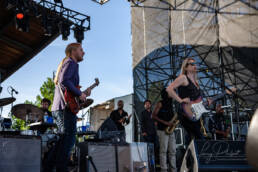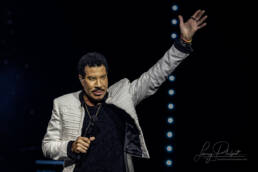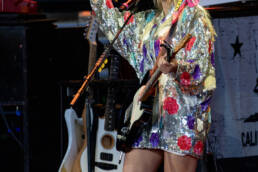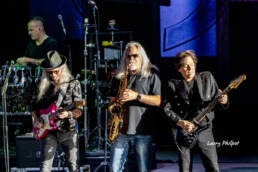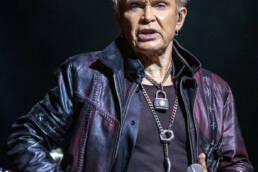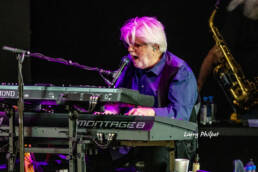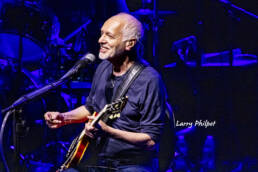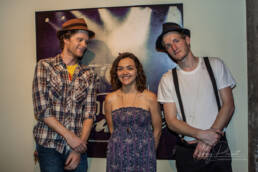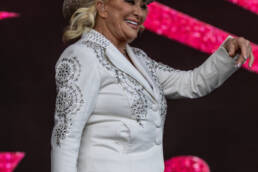B.B. King: The Blues Boy Who Crowned a Genre
Picture a sharecropper’s son in the Mississippi Delta, 1930s sun scorching the cotton fields, his small hands clutching a broomstick he’d strung with wire, dreaming of notes that could lift him out of the dirt. For Riley B. King—later B.B.—music wasn’t just a career; it was salvation, a voice for a soul shaped by hardship and a burning need to turn pain into something beautiful. What drove him to pursue it? It was the gospel hymns echoing from church, the raw wail of Blind Lemon Jefferson on a wind-up Victrola, and a vow to rise above the plantation’s grind with a guitar named Lucille. That fire made him the King of the Blues, a crown he wore with every trembling note.
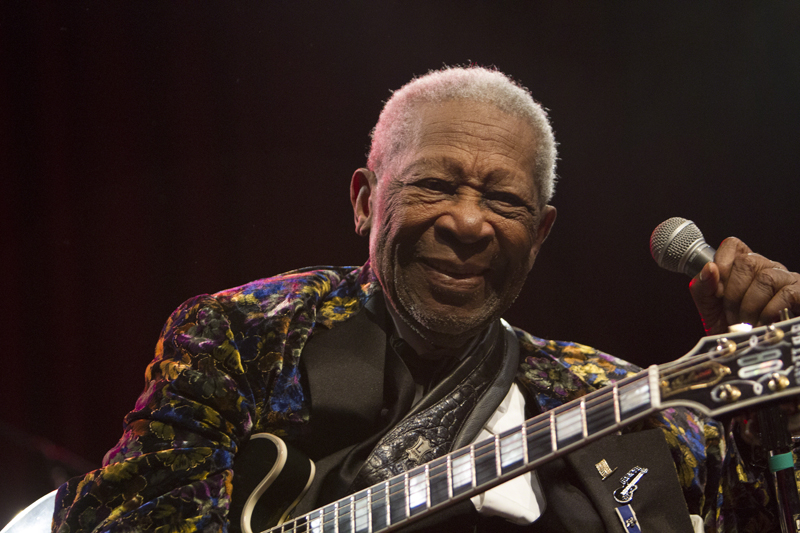
From the Delta to the World
Born September 16, 1925, on a plantation near Berclair, Mississippi, Riley B. King was the son of Albert, a sharecropper, and Nora Ella, who split when he was four. Raised by his grandmother Elnora Farr in Kilmichael, he sang in church choirs, his voice a beacon amid poverty. At nine, his mom died; at 14, his grandma followed—orphaned, he worked fields for $2 a week. A tractor accident at 18 nearly killed him, but music beckoned. Self-taught on a $15 guitar, he soaked up T-Bone Walker and Lonnie Johnson, hitchhiking to Indianola by 1943 to busk.
World War II draft boards rejected him—flat feet—and he landed in Memphis by 1947, crashing with cousin Bukka White. A DJ gig at WDIA earned him the “Beale Street Blues Boy” tag, shortened to B.B. By 1949, he was recording—“Miss Martha King” flopped, but “3 O’Clock Blues” (1951) hit No. 1 on the R&B charts, launching a legend.
A Career of Lucille and Legacy
B.B.’s career was a solo odyssey, though he fronted bands. Early on, he led the B.B. King Review, a shifting crew of horns and rhythm—think Hank Crawford (sax), Duke Jethro (organ), and Sonny Freeman (drums)—backing his stinging Gibson licks. His peak ‘60s-‘70s lineup, often billed as B.B. King and His Orchestra, featured stalwarts like Millard Lee (piano), Wilbert Freeman (bass), and Calvin Owens (trumpet), powering hits like Live at the Regal (1965). No “most popular band” locks him down—B.B. was the band, Lucille his co-star.
He cut over 50 albums—Singin’ the Blues (1957), Lucille (1968), Riding with the King (2000) with Eric Clapton—selling millions. Side gigs? He jammed with The Crusaders, fronted pickup groups like the Mississippi Seed Band. Relationships? He idolized Clapton (their duet album a love letter), mentored Buddy Guy, and duetted with U2 (“When Love Comes to Town”). Married twice—Martha Lee Denton (1946-1952), Sue Carol Hall (1958-1966)—he fathered 15 kids (some disputed). On screen, he hit The Ed Sullivan Show, played The Blues Brothers (1980), and voiced in The King of Queens. His tunes grace The Color Purple and Forrest Gump.
Awards? 15 Grammys—Best Traditional Blues Album nine times, Lifetime Achievement (1987)—plus Rock and Roll Hall of Fame (1987), Blues Hall of Fame (1980), and Kennedy Center Honors (1995). Over 15 million records sold, a Presidential Medal of Freedom (2006)—B.B.’s a titan.
Here’s a rundown of his biggest hits:
- “The Thrill Is Gone” – Written by Roy Hawkins and Rick Darnell, B.B.’s 1969 No. 15 pop hit redefined blues.
- “3 O’Clock Blues” – Penned by Lowell Fulson, this 1951 R&B No. 1 broke him big.
- “Every Day I Have the Blues” – Crafted by Memphis Slim, his 1955 R&B No. 8 is a staple.
- “Sweet Little Angel” – Co-written by B.B. and Jules Taub, this 1956 R&B No. 6 wails pure soul.
Controversy in the Blues Kingdom
B.B.’s life had thorns. His paternity disputes—claiming 15 kids, some contested—boiled over post-2015 death, with heirs suing over his $30 million estate. A 1948 bar fire in Twist, Arkansas—he ran back for his guitar, naming it Lucille after the fight’s cause—became lore, but locals grumbled he’d hyped it. In 1984, a tax lien hit—$1.3 million owed—sparking headlines; he paid up, shrugging, “Blues don’t pay steady.” His 2014 health decline—shaky gigs, dehydration—drew fan ire at managers for pushing him; daughters cried neglect, though courts dismissed it. B.B.’s reign stayed regal, controversies mere ripples.
A Night of Soul Fire: Chicago, 1964
Let’s step into November 21, 1964, at Chicago’s Regal Theater—a 3,000-seat Black mecca, B.B.’s turf on the Chitlin’ Circuit. Live at the Regal was being taped, and he was 39, Lucille ablaze. Decked in a tux, he strode out, launching “Every Day I Have the Blues”—his growl cut the air, horns punching back. The crowd—working folks, sharp-dressed—hollered like church. Mid-set, “Sweet Little Angel” hit, and a string snapped—B.B. kept singing, swapping Lucilles mid-phrase, grinning, “She’s mad tonight!” Fans roared; he bent a note so blue it hushed the room.
Then, “How Blue Can You Get”—written by his wife Sue—a drunk in the balcony chucked a bottle, shattering near the stage. B.B. ducked, laughed, “Guess I’m too blue for ya!” and ripped a solo that shook the rafters. The tape caught it all—sweat, sass, soul—released as a landmark LP, No. 141 on Rolling Stone’s 500 Greatest Albums. “That night,” he told DownBeat, “I felt every scar I ever earned.” Buddy Guy, in the wings, said, “He turned a mess into a miracle.” Fans call it “The Bottle Bounce”—a raw, electric night proving B.B. could bend chaos into gold.
B.B. King’s journey is the blues incarnate—Delta dirt to global glory. With Lucille, he sang a century’s pain and joy, a king whose throne was every stage. Hear him on vinyl in 2025, and that thrill’s still alive, trembling through the strings.
